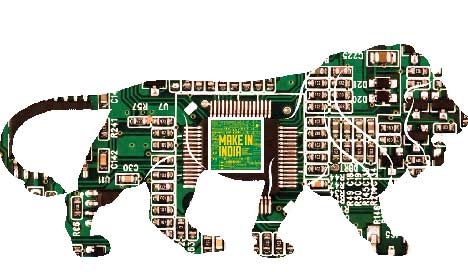It is in India’s critical national interest to become self-sufficient in manufacturing semiconductor chips. Semiconductors are at the heart of everything and are becoming an almost infrastructure-like necessity such as electricity, said Mukesh Khare, the vice president of hybrid cloud research at the Big Blue tech firm.
India should reduce its dependence on other countries since the Covid-19 pandemic has disrupted global supply chains, he added.
“A country like India must have a very keen strategy, (to) be able to be sufficient, or independent. Basically, with coronavirus, we have seen supply chain disruptions. If you are depending on so many different parts of the world, things happen. And if you don’t get your chip, the whole industry shuts down…” Khare said.
India needs to focus on building some aspects of chip infrastructure within the country, and IBM is willing to partner with Indian officials in this regard, he added.
The government, which has pushed domestic manufacturing in electronics and mobile phones through various incentive schemes, had earlier invited firms to set up semiconductor manufacturing facilities.
Khare did not, however, comment on whether IBM would look at India as one of its manufacturing destinations in the future.
IBM announced the development of the world’s first chip with 2-nanometre (nm) nanosheet technology, which is projected to achieve 45% higher performance, or 75% lower energy use than today’s most advanced 7-nm node chips.
The 2-nm chip is expected to reach manufacturing supply chains by 2024, said Khare.
The advanced chip is expected to quadruple cell phone battery life, only requiring users to charge their devices once every four days and significantly slash the carbon footprint of data centers, which account for 1% of global energy use.
It will also significantly speed up laptop functions, leading to faster processing of applications and assisting in language translation, along with faster internet access. It is also expected to speed up object detection and reaction time in autonomous vehicles like self-driving cars.
With the advent of artificial intelligence, the computing requirement is doubling every three and a half months, said Khare.
“That is just an unsustainable need of computing power, and that’s where this chip will be very helpful,” he added.
Khare also said that the new chip will accelerate the discovery process of new drugs by 10-20 times, which will be helpful in dealing with situations such as the Covid-19 pandemic.
“That’s where we will start to see the value of this type of innovation… The two very important points are AI, and the discovery of new materials, new drugs, because those require significant computing capability,” he said.
Developed less than four years after IBM announced its milestone 5-nm design, the new 2-nm chip will fit up to 50 billion transistors on a chip the size of a fingernail.








